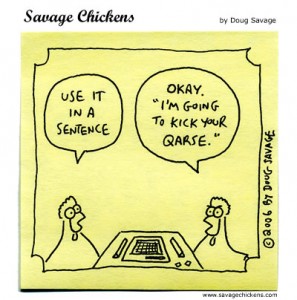Dear Hillary:
I want to begin by saying a simple thank you.
Given how difficult the last few days have been for me (and all of your 50 million plus supporters), I can’t begin to comprehend the magnitude of your own disappointment. You worked your entire life to get to this moment, and you deserved to be the one who finally cracked that massive glass ceiling. I hope it gives you some comfort to know that the majority of Americans agree: you currently lead in the popular vote by nearly half a million, and that total is expected to grow by at least another million before all the votes have been counted. The sadly outdated Electoral College has stolen your victory and, perhaps appropriately enough, has set our country on a path to return to the stone age, as my oldest daughter, Carrie, aptly put it last night. After all the progress our beloved country has made over the past 50 years, the men of our nation, and yes, sadly, plenty of women as well, have decided that ugly path is the one we should take. To what end, I have no idea, but I fear they shall all soon discover that a return to the Andy Griffith and Leave It To Beaver 1950s they recall so fondly is in fact not all that wonderful for the majority of Americans. Like Trump himself, those were television shows not based on any actual reality. The world has moved on, and so too must the country which the rest of the free world looks toward as its ultimate shining example.
I am writing this letter to you today because I want you to know how very much you have meant to me over the years. I was raised by my grandmother and her mother, so I know about strong, independent women. My grandmother lived to be 95, and as the last few months of this campaign wound down, I found myself wishing so badly that she were here to sit beside me, to hug and shake our heads and cry as we bask in your magnificent accomplishments. I will never forget that scene on the final night of the Democratic convention when you accepted the nomination. It still brings tears to my eyes as I write this. You are such an inspiration! Your accomplishments as a public servant are second to none, as is your ability to persevere amid the torrid of hatred spewed at you from every angle. No matter how hard they smash you down, you refuse to “stay throwed,” as one speaker from the convention so clearly noted.
Whereas most in your position would have given up long ago, you didn’t quit and I know that you will continue to keep fighting still—for our children, our mothers and grandmothers, minorities, the disabled. Everyone who dares to be “different” because it means being themselves. You are our hero, and please don’t ever forget that. As we prepare to watch the republicans grab total control of our beloved nation, we need you more than ever. Be our voice. Guide us through the next four years with your wisdom and courage. And always remember, we love you from the bottom of our hearts.
Per Julia’s request, her signature has been added to this letter.
With warm and heartfelt sincerity from us both,
Connie Kirchberg
Julia Simpson Uttutia













![DSCN7189[1]](https://grassrootswritersguild.files.wordpress.com/2014/06/dscn71891.jpg?w=300&h=225)

![DSCN7186[1]](https://grassrootswritersguild.files.wordpress.com/2014/06/dscn71861.jpg?w=300&h=225)


